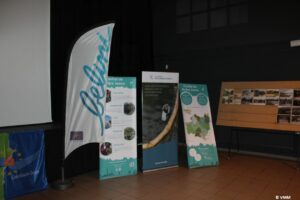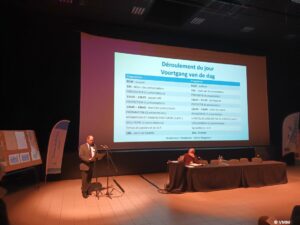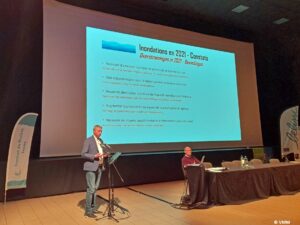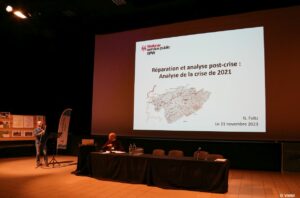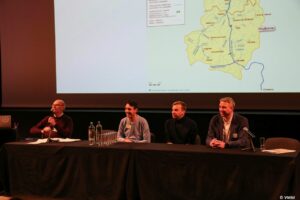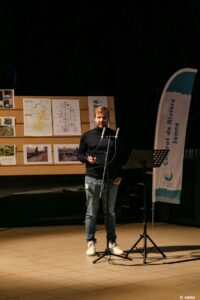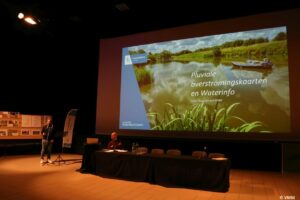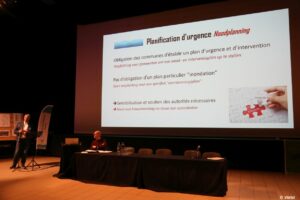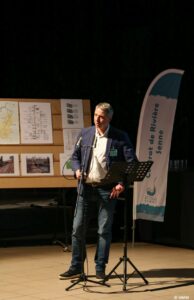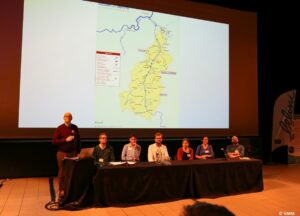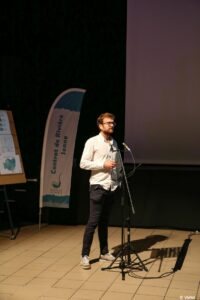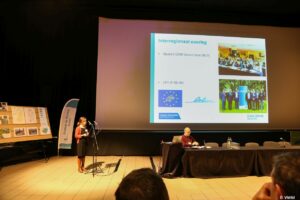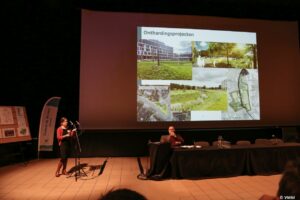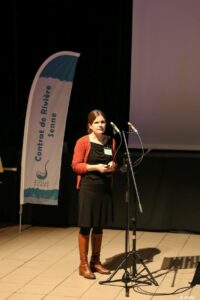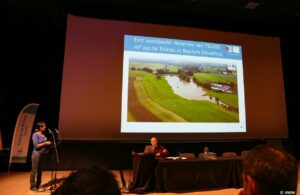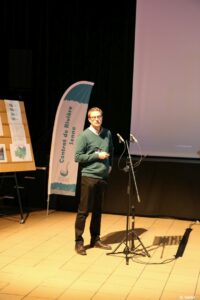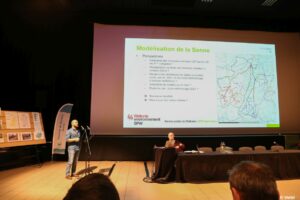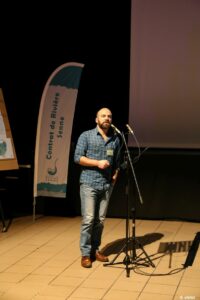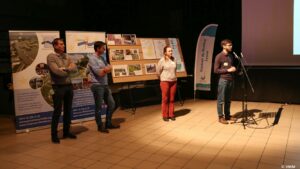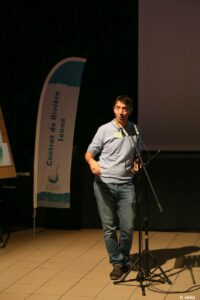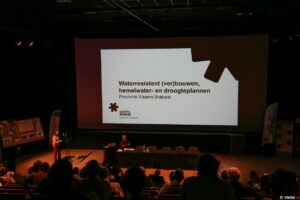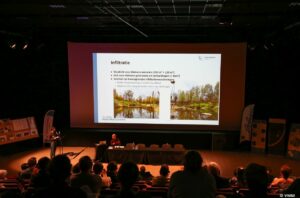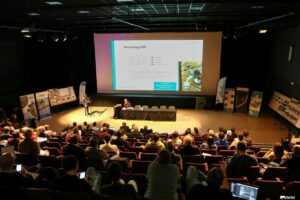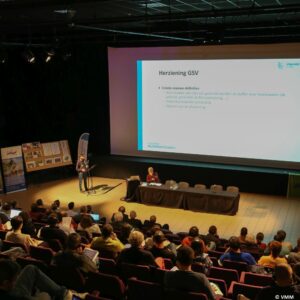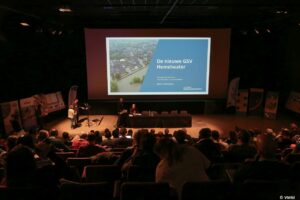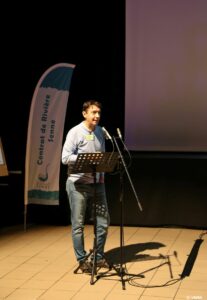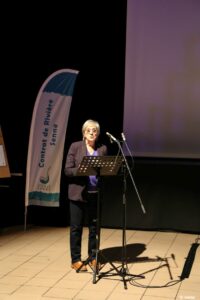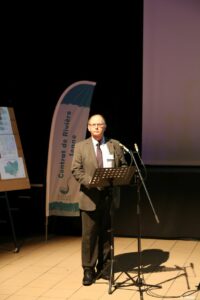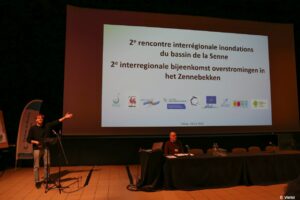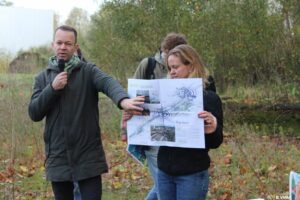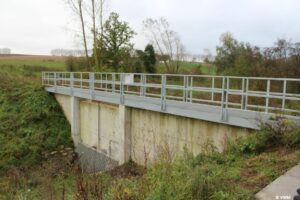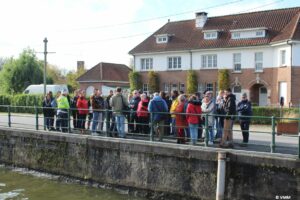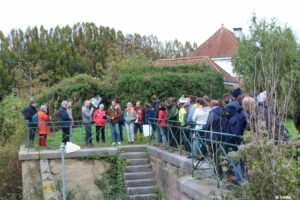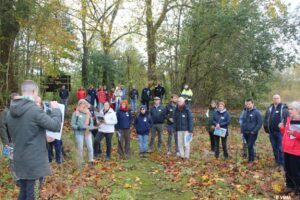The Senne is the only river in Belgium that crosses all three regions of the country. Therefore, it is important that the different regions cooperate and exchange information with each other. Spread over two days, they therefore held an interregional meeting about managing innodations of the Senne.
rises in Soignies in Wallonia, continues its course in Lembeek in Flanders just after Tubize, then in Brussels and finally back to Flanders where it joins the Scheldt and then the North Sea.
So when it comes to flood control, it is important to work together on all sides of the borders. At the initiative of the Contrat de Rivière Senne, Coordination Senne and Bekkensecretariaat Dijle-Zenne, over 100 professionals and policymakers from the Senne basin met in Tubize on 21 November to present and exchange the best practices and actions implemented over the past ten years to reduce the impact and risks of flooding.
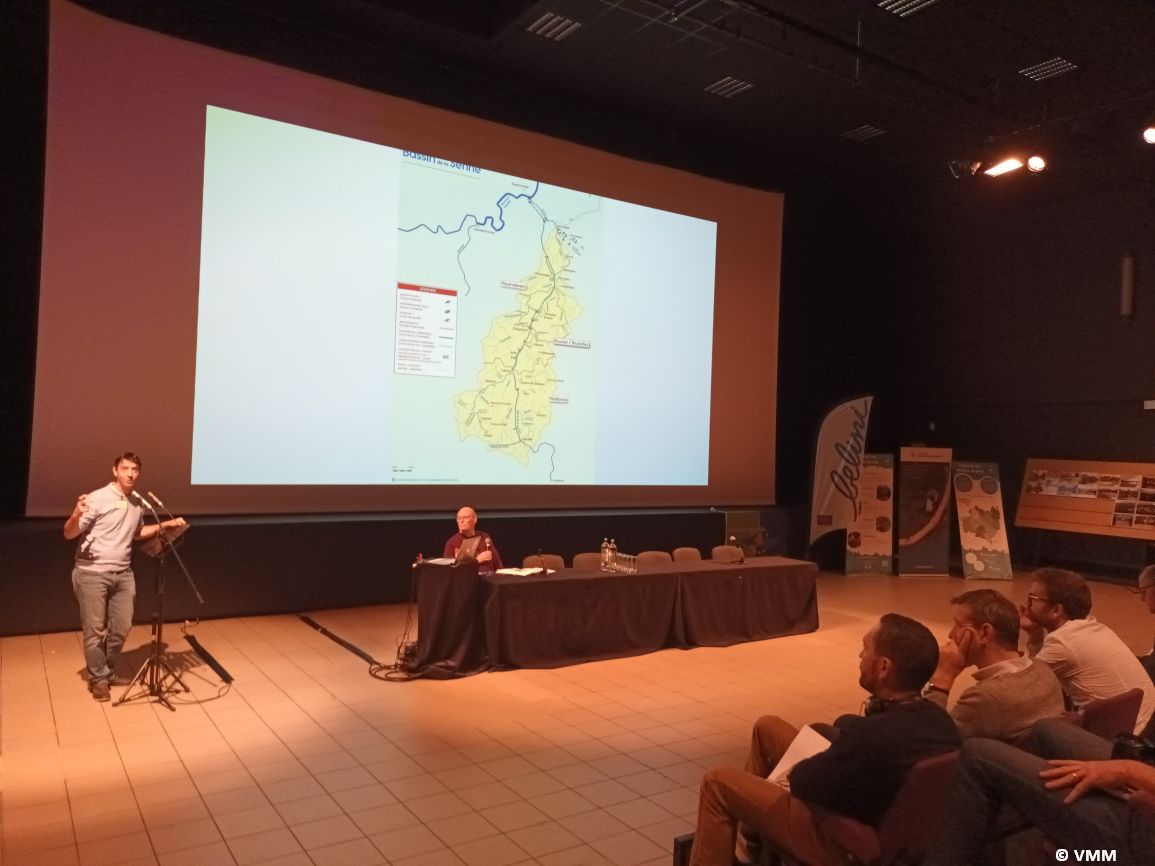
This inter-regional meeting was the second to be held in the basin. The first was held in Hal in 2012, following the devastating floods of 2010. This meeting was an opportunity to take stock more than ten years later.
From the many discussions, we can conclude that on the Walloon side, water retention work has taken place and continues; a number of water retention structures have been built in the upstream part of the Senne basin, thanks to the LIFE Belini project among others, and new projects will soon be launched. Another finding was that interregional coordination and consultation can and must be further improved.
Each party’s thoughts and requests have been heard, and it is now time for action!
Site visits
A series of site visits took place in the Zenne Valley on Tuesday 7 November 2023 in response to flooding problems in the region. Regularly, the Senne River overflows its banks. In 2010, even the dykes of the Brussels-Charleroi canal broke. Thirteen years after the floods, a review of the water management of the Senne basin is being carried out.
The programme included the Gaesbecq temporary flood plain in Ittre, the Lembeek weir and the Halle lock. Jan Lippens, vzw Coördinatie Zenne: “With the 2010 floods in mind, we are looking at the progress on water management. What has already been done at the moment, what can and must still be done. The intention is to bring a lot of people together around the topic and in this way also encourage inter-regional cooperation.”

